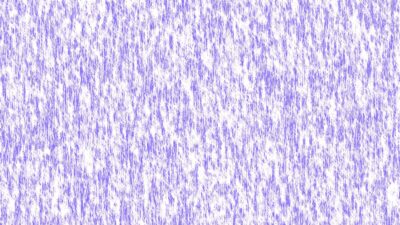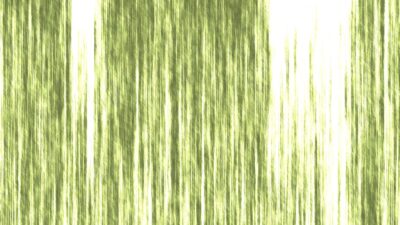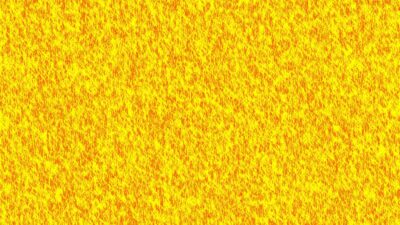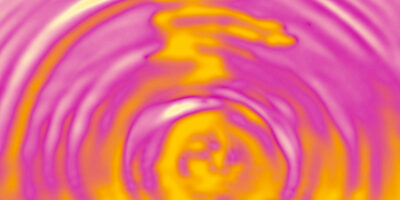Last week, a good friend and fellow jazz enthusiast sent me a streaming link to an album they thought I would appreciate—an album that has since quickly ascended my favorites of the year in a very short time: EX MACHINA by Steve Lehman and the Orchestre National de Jazz. The Orchestre National is a group whose reputation precedes them; these are the kinds of musicians capable of subatomic levels of precision as performers.
Lehman has long been hailed as a visionary with a saxophone, a man of an experimental inclination, but with more of a literal scientific bent than your usual jazzman. One of his claims to fame comes as, perhaps, the single artist who has most actively brought the composition techniques known as spectralism to the world of jazz. This ultimately gets into some treacherous territory in the bogs of music theory and acoustic science that I cannot claim to fully understand, but spectralism ultimately entails studying the spectra of sound waves to see how instruments can be harmonized not just in pitch, but also in timbre. It often involves the use of artificial intelligence-driven software to study said spectra and manipulate and generate new sound waves, which is what brings us to EX MACHINA and its central trick.
EX MACHINA features original spectral composition from Lehman and a very game Orchestre National who come fully prepared for a fight—this is an ensemble armed to the teeth with talent. To this potent powder keg is added the secret sauce, a live-interacting A.I. component that reacts to the timbral qualities of the band’s sonic output and generates additional electronic sound in real time, allowing the band to improvise with the A.I. and vice versa. The spectral component of the composition paired with the A.I. makes textures and instruments very difficult to distinguish at times; the A.I. does a remarkable job of mimicking the general tone quality of a vibraphone or horn.
—
EX MACHINA is the first album you will ever hear that truly makes you feel like you’re living in the world of a Philip K. Dick novel. Sometimes you’re able to tell where the band ends and the A.I. begins, but not always. The results are thrilling—truly a feast for the ears. The songs are dynamic and never allow you to even think about letting your guard down for a moment. It’s impossible to know when a brand new sound or tone, rapid mood change, or breathtaking instrumental flourish is about to ambush your left flank, but it happens so often that it’s difficult to do anything but surrender to each new curveball as it comes, the band moving with a strange and supernatural synchronicity.
Much of EX MACHINA could rightfully be defined as “free jazz,” but no matter how dissonant or chaotic things get, the sounds always manage to sonically cohere, sometimes in the most ephemeral, intangible ways. People are right to be skeptical and guarded about A.I.-generated anything, especially music—any chump with access to basic A.I. tools can crank out a convincingly lifeless and paint-by-numbers facsimile of a Drake song—but what Lehman and Co. have accomplished here feels revelatory, a triumphant marriage of the immense potential of A.I. technology with the astounding creative faculties of over a dozen 99.9th-percentile musicians.
—
It just so happens that my discovery and subsequent enjoyment of this album has almost exactly coincided with the release of the second full-length LP from British pop star Hannah Diamond, PERFECT PICTURE. There is a distinct possibility that PERFECT PICTURE may be the final album ever officially released on PC Music, as the groundbreaking A.G. Cook-led label has announced the cessation of its operations at the end of 2023, wrapping up a decade of constantly redefining the boundaries of pop music. If so, Hannah Diamond is fitly chosen as the singer of the label’s swan song: in 2013, she was the standout among the very first wave of PC Music singles with her debut song “Pink and Blue,” and has stuck with them the whole way, releasing a slew of more fantastic singles before finally landing an equally great debut LP in 2019. Throughout those years, Diamond has been the backbone of the entire PC Music creative project, not only releasing some of its catchiest songs but also serving as graphic designer, photographer, creative lead, and stewardess of the brand and aesthetic. Aided by the talents of Diamond and many other like-minded artists, producers like Cook and Danny L. Harle, plus close affiliates like the immortal SOPHIE, were able to work their magic on an unmistakable style of subversive, uncanny valley pop music, intentionally blurring the lines between the real and artificial, the organic and mechanical.
Diamond has always been the master of this key balance, blending her intimately human and ultra-sincere lyrics with simple but sublime melodies, spartan and synthetic arrangements, and a haltingly exact sing-song vocal delivery that sounds just robotic enough to have fooled people back in PC Music’s nascent days. Her music has proved the ideal canvas for a number of novel topics in the age of social media: the intense insecurities and vulnerabilities of online romance, self-care and improvement rendered as transhumanism, the refractions of the self through multiple competing layers of artifice, physical, virtual, and imagined. PERFECT PICTURE is her finest hour, a full and complete realization of the PC Music project and her career up to this point—a dozen raw, beating human hearts encased in blindingly bright layers of gleaming synthesizers and vocal manipulations.
—
If PERFECT PICTURE is truly PC Music’s final flagship, it is a Viking funeral pyre of fitting proportions, a grand thesis statement and showing of the work that lays bare their sheer impact on the landscape of today’s popular music. After the initial wave of singles that Diamond spearheaded in the early years, the PC Music sound and style quickly gained a following and started attracting bigger, established names like Charli XCX, Carly Rae Jepsen, and Caroline Polachek. While none of these relative heavyweights have ever officially signed to PC Music, they’ve collectively released dozens of songs produced by or featuring PC Music talent, taking the sound and ethos to major labels and larger audiences. Like every creative wave that reshapes the broader realm of music in its own image, it had its time, and then it outgrew itself. The PC Music wave ultimately spawned the much more aesthetically confused and corporately engineered “hyperpop,” and the tenets and hallmarks of its signature sound were subsumed into the wider pop music monoculture. PC Music itself has become a bit of an afterthought, and much of its talent has moved on to new, varyingly green pastures, but its impact is still felt at the very top of the Billboard charts—it’s impossible to imagine the mainstream success of artists like PinkPantheress or Kim Petras without the trailblazers that paved the way.
As the prospect of A.I.-aided or A.I.-generated music crystallizes into a reality, it makes sense that Cook, Diamond, and the others at PC Music would see it fit to retire a collective that sought to realize a unique vision of what computer-born pop music might be like. It feels like a very tangible and unmistakable crossroads, one into which we are charging headlong and from which we will not be able to return. The broader potential ramifications of unleashing artificial intelligence onto the fragile psyches of our world today are impossible to grapple with, nor is it simple to consider how our art will reflect this world back at us in the coming years, but it gives me hope that artists like Steve Lehman and Hannah Diamond will be among those guiding us all into the great unknown. It will require thoughtfulness and stewardship, but the possibility of a future where A.I. technology is used to augment and stimulate human ideas and voices rather than replace them is within reach. As Diamond very pointedly sings in the closing minutes of PERFECT PICTURE, “Brand new starts aren’t always a bad thing / Sometimes good things come from an ending.”
















Comments